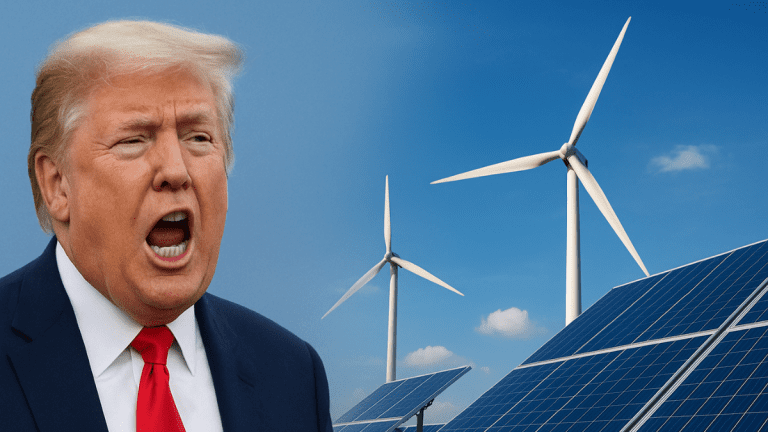
🕒 Last updated on September 27, 2025
Strong remarks dismissed climate change as a “con job” and renewable energy as a “scam” during a major global meeting. Harsh criticism was directed at wind power and Europe’s green energy efforts, describing them as dangerous and costly.
A sharp attack on climate action
These statements came despite wide scientific evidence showing that carbon emissions are heating up the planet. Experts have already warned that the world is struggling to keep temperature increases below 1.5°C, and reports also highlight that biodiversity loss is worsening.
The comments sent shockwaves across the global stage. Many saw them as a rejection of years of progress in environmental efforts. Yet, while the words were loud and forceful, they revealed a disconnect from what is really happening in the world of energy. In reality, renewable energy has become much more than just a climate solution. It has grown into a key driver of cheaper power, job creation, and national security.
Clean energy tied to security and prosperity
Across Europe, clean energy is being seen not only as a tool to cut carbon emissions but also as a way to lower high energy bills and reduce dependence on foreign suppliers. Leaders there have pointed out that energy prices in Europe remain two to three times higher than those in the US. Switching to renewables offers a path to reduce these costs, create new industries, and power the growing demand from data centers.
The story is similar in other parts of the world. China and Gulf nations are investing heavily in green energy, building large solar and wind projects. Even regions with deep ties to fossil fuels, such as Texas, have become major hubs for renewable power because of their rising energy needs. Technology companies are also pushing for clean energy, not mainly for climate reasons, but because they require vast amounts of affordable electricity to run their operations.
This trend highlights a new version of “ESG.” In this form, ESG does not only mean “environmental, social, and governance.” Instead, it stands for energy savings, security, and growth. These factors are now pushing governments and businesses alike to embrace clean power solutions faster than before.
The unstoppable investment boom
Renewables are not without challenges. Wind power in northern countries still requires backup from fossil fuels when weather conditions are not steady. Experts also stress the need for better batteries and smarter grids to balance energy supply. Yet, the larger picture shows that renewables are quickly becoming the cheaper option. According to international estimates, 90 percent of newly built renewable energy sources now cost less than fossil fuel alternatives.
This shift is also visible in the flow of money. The International Energy Agency expects global investments in renewables to hit around $2.2 trillion this year, which is double the spending on fossil fuels. Solar energy in sunny regions is already so cost-effective that prices could be cut in half by 2050. In areas rich in wind resources, costs remain higher but are expected to fall as technology improves.
Despite attempts to block certain projects, renewable energy developers continue to secure legal victories. Offshore wind farms, solar parks, and storage systems are being built at a record pace. In the United States, court rulings and regional policies have slowed down efforts to revive large-scale fossil fuel drilling. Meanwhile, in China, strong supply chains for green technologies give it a dominant role in the market.
The combination of cheaper technology, stronger economic incentives, and global competition means that renewable energy is no longer just an environmental idea. It is now a central part of economic planning. Efforts to discredit or dismiss it may create political drama, but they are unlikely to reverse the massive momentum behind clean energy.